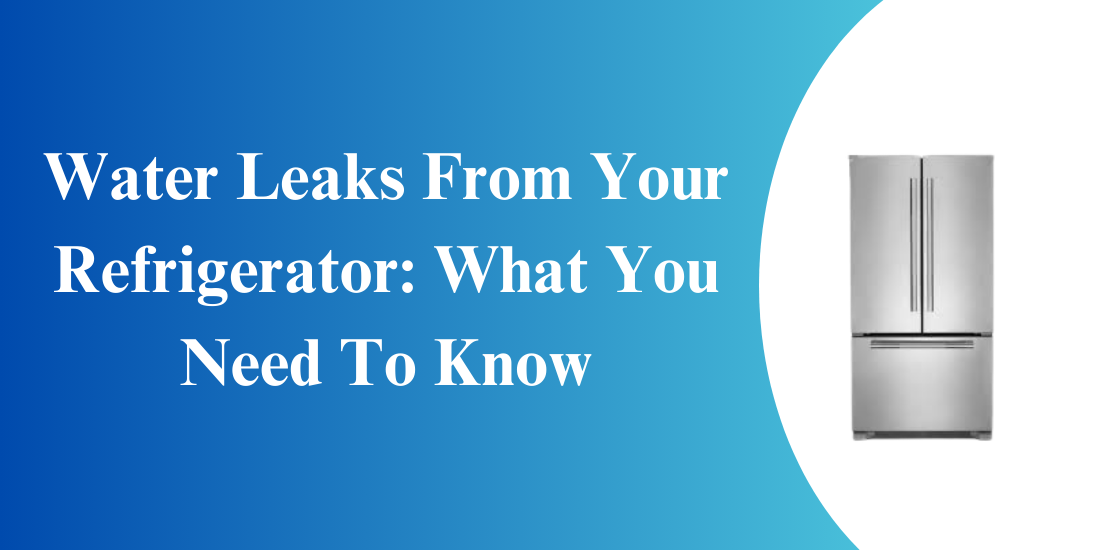
Water leaks from your refrigerator can be more than just a nuisance; they can lead to extensive damage and costly repairs if not addressed promptly. Understanding the components of your refrigerator and the common causes of leaks can help you take proactive measures to prevent them. This article will guide you through the essential refrigerator parts, common leak causes, and effective solutions, ensuring your appliance remains in optimal condition.
Understanding Refrigerator Components
Before we dive into the causes of water leaks, it’s important to have a basic understanding of some key refrigerator parts. These include:
- Drain pan: This is a plastic tray located at the bottom of the refrigerator that collects water from the defrost cycle.
- Drain tube: This is a small tube that connects the drain pan to the drain hole, allowing water to flow away.
- Evaporator coils: These coils are located behind the back panel of the refrigerator and are responsible for cooling the interior.
- Condenser coils: These coils are located on the back or underside of the refrigerator and are responsible for releasing heat.
- Water inlet valve: This valve controls the flow of water into the refrigerator for the ice maker and water dispenser.
Common Causes of Refrigerator Water Leaks
Identifying the cause of a water leak is the first step toward finding a solution. Here are some of the most common reasons for refrigerator leaks:
1.Damaged Door Seals
Worn or cracked door seals can allow humid air to enter, leading to condensation that leaks out of the refrigerator. Regular inspection and maintenance of the door seals are crucial.
2. Clogged Defrost Drain
A clogged defrost drain can cause excess water to build up and leak out of the refrigerator. Debris, food particles, or ice can block this drain, so it’s essential to check and clean it regularly.
3.Faulty Water Supply Line
For refrigerators with ice makers and water dispensers, a damaged water supply line is a frequent source of leaks. These lines can crack or become loose, causing water to escape.
4.Leaking Drain Pan
If the drain pan is cracked or improperly positioned, it can lead to water spilling onto the floor. Regularly checking and replacing the drain pan as needed can help prevent this issue.
5. Improper Installation of Water Filter
If the water filter is not installed correctly or is clogged, it can lead to leaks. It’s vital to ensure that the filter is seated properly and replaced according to the manufacturer’s recommendations.
Fixing Water Leaks in Your Refrigerator
Once you identify the source of the leak, you can take steps to fix it. Here’s how to address some common issues:
- Repairing or Replacing Door Seals
Inspect the door seals for cracks or dirt buildup. Clean them with warm, soapy water, and if you notice significant damage, consider replacing them. New seals are relatively easy to install and can significantly improve the refrigerator’s efficiency.
2.Clearing the Defrost Drain
To clear a clogged defrost drain, pour a mixture of hot water and vinegar down the drain to help dislodge any debris. If the blockage persists, a plumber’s snake can be used to remove it.
3.Inspecting the Water Supply Line
Examine the water supply line for cracks or loose connections. If you find any damage, replace the line or tighten the connections. Ensure that the line is correctly routed and not pinched during installation.
4. Replacing the Drain Pan
If the drain pan is cracked or misaligned, it should be replaced. Remove the old pan and install a new one, ensuring it sits properly to prevent leaks.
5. Checking the Water Filter
If the water filter is clogged or incorrectly installed, it can lead to leaks. Remove the filter, inspect it for damage, and replace it if necessary. Ensure that the new filter is correctly seated according to the manufacturer’s instructions.
Water leaks from your refrigerator can be frustrating, but understanding their causes and the involved components helps address the issue effectively. Regular maintenance, damage inspections, and prompt leak resolutions can prolong your refrigerator’s lifespan and prevent costly repairs. If leaks persist, seek professional help to ensure your appliance stays in optimal condition. Proactive care is key to preventing leaks and maintaining your kitchen appliance’s efficiency.








The best choice for every home.